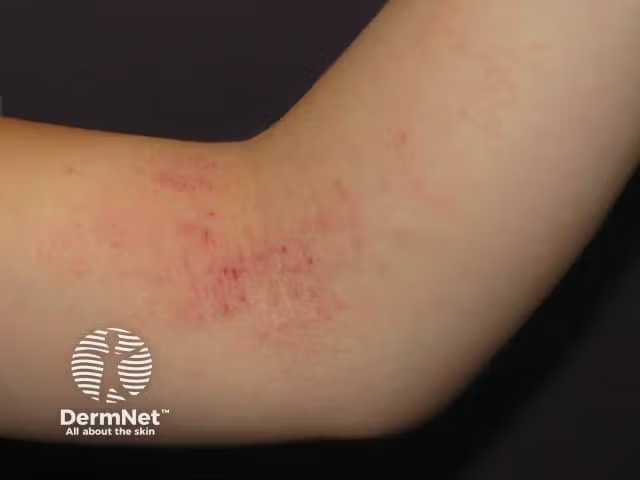- Case-Based Roundtable
- General Dermatology
- Eczema
- Chronic Hand Eczema
- Alopecia
- Aesthetics
- Vitiligo
- COVID-19
- Actinic Keratosis
- Precision Medicine and Biologics
- Rare Disease
- Wound Care
- Rosacea
- Psoriasis
- Psoriatic Arthritis
- Atopic Dermatitis
- Melasma
- NP and PA
- Skin Cancer
- Hidradenitis Suppurativa
- Drug Watch
- Pigmentary Disorders
- Acne
- Pediatric Dermatology
- Practice Management
- Prurigo Nodularis
- Buy-and-Bill
News
Article
Exploring the Relationship Between AD, Psychological Stress, Sleep Disturbances, and Salivary Biomarkers
Author(s):
Understanding these relationships is crucial for developing effective clinical management strategies for patients with AD, according to a recent literature review.
A recent comprehensive literature review was conducted by Brazilian researchers to explore the intricate connections between atopic dermatitis (AD), psychological stress, sleep disturbances, and salivary biomarkers. Understanding these relationships is crucial for developing effective clinical management strategies for patients with AD.
The study focused on articles published between January 2012 and October 2022, obtained from databases such as PubMed and Scientific Electronic Library Online. The Health Sciences Descriptors used included "atopic dermatitis," "psychological stress," "sleep," and "salivary proteins and peptides."
Investigators wrote that the importance of this literature review lies in the scarcity of research associating AD with salivary biomarkers, stress, and sleep disturbances. AD adversely affects patients' quality of life and is exacerbated by psychological stress. Sleep disorders in AD patients worsen their well-being, academic performance, and family dynamics, further intensifying stress levels.
AD and Sleep Disturbances
Sleep disorders, observed in up to 60% of patients with AD, negatively impact neurocognitive function, behavior, and mood. Studies indicate that sleep disturbances are linked to greater AD severity and increased scratching. Actigraphy and polysomnography studies reveal altered sleep efficiency, longer latency time to sleep onset, increased fragmentation, and reduced non-rapid eye movement sleep in children with AD.
AD and Psychological Stress
Psychological stress exacerbates AD symptoms, and the severity of stress depends on individual perception and the intensity of stressors. The hypothalamic-pituitary-adrenal (HPA) axis and the autonomic nervous system play critical roles in the stress response. Dysregulation in the HPA axis is observed in AD patients, resulting in an imbalanced immune response and triggering inflammation.
AD and Salivary Biomarkers
Saliva, a non-invasive biofluid, reflects psychological stress through biomarkers like cortisol, melatonin, chromogranin A, alpha-amylase, and immunoglobulin A (IgA). Studies suggest that these salivary biomarkers may serve as indices for evaluating stress in AD patients. Melatonin, with its immunomodulatory and anti-inflammatory effects, is implicated in AD severity and sleep disturbances.
Conclusion
This narrative review sheds light on the intricate interplay between AD, psychological stress, sleep disturbances, and salivary biomarkers. The severity of AD is not only reflected in physical symptoms but also in the emotional and social well-being of individuals. Salivary biomarkers show promise in assessing stress levels and understanding the complex associations between AD, sleep disturbances, and psychological well-being. Further research is essential to unravel the full scope of these relationships and develop targeted interventions for improved clinical management of AD patients.
Reference
Estefan J, Ferreira DC, Cavalcante FS, Dos Santos KRN, Ribeiro M. Investigation of possible relationship between atopic dermatitis and salivary biomarkers, stress, and sleep disorders. World J Clin Cases. 2023;11(17):3958-3966. doi:10.12998/wjcc.v11.i17.3958







